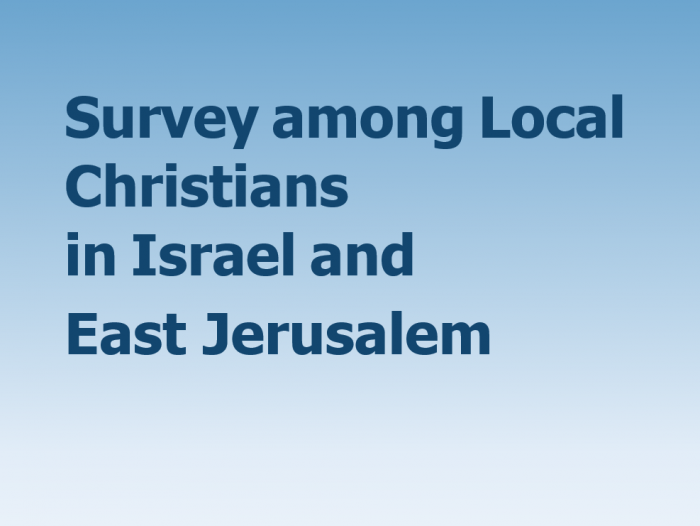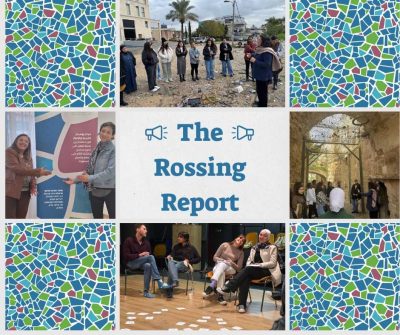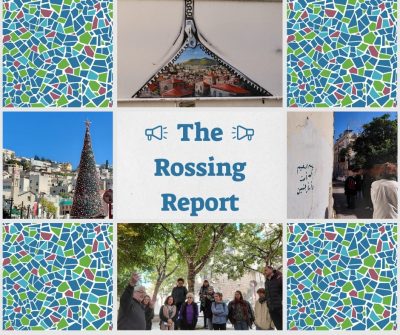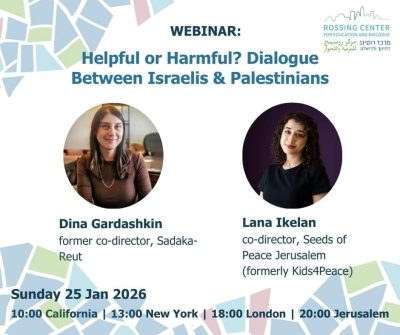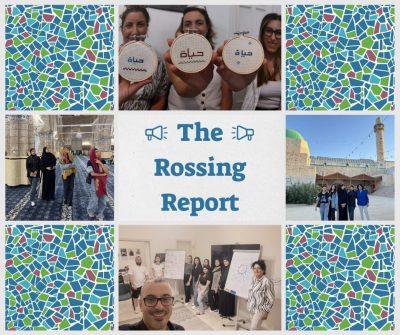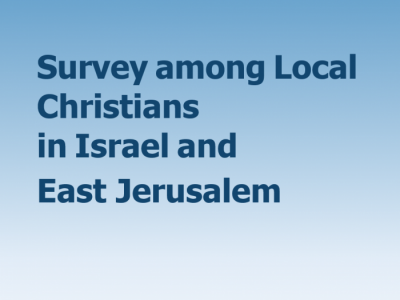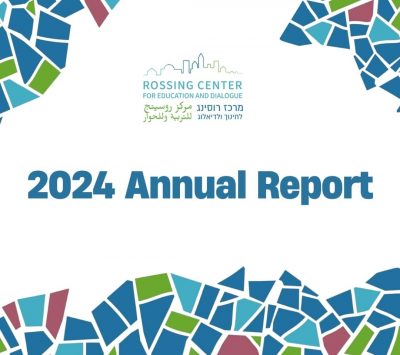The Rossing Center for Education and Dialogue conducted this survey to gain a deeper understanding of the challenges, needs, and aspirations of Christians in Israel and East Jerusalem—specifically Arab-Palestinian Christians, who form the majority of these indigenous communities and are either Arab-Palestinian citizens of Israel or East Jerusalem residents. Building on our longstanding work in Jewish-Christian relations, and particularly our recent two-year advocacy efforts aimed at enhancing the safety and well-being of Christian communities, it became clear that a direct consultation with community members themselves was necessary. This survey represents a deliberate move to engage directly with these communities in order to inform and refine future initiatives, but also to provide the Churches, researchers, and the wider public with updated information. The urgency of such research has grown in response to ongoing political changes pointing to a more polarized context, which is less tolerant of diversity, and the wider uncertainty surrounding the future of the Middle East. Findings from multiple studies consistently point to several growing concerns among Arab-Palestinian Christians, including identity struggles, experiences of inequality, a complex relationship with the state, and a pressing need to strengthen ties with local churches.
Between 130,000 and 140,000 Arab-Palestinian Christians live in Israel and East Jerusalem, comprising approximately 6.9% of the total Arab-Palestinian population in the country.
Although relatively small in number, they represent a significant minority—not only due to their centuries-old presence in the region, but also because of their prominent social and symbolic roles. Arab Christians play a vital role in shaping Israeli-Palestinian relations, hold considerable importance for global Christian communities given the Holy Land’s religious significance, and influence Jewish-Christian relations in both theological and political spheres.
As Christians and Arab-Palestinians, they constitute a double minority: nationally, they are part of the Arab-Palestinian population; religiously, they are a minority within that group. In recent decades, this identity has become even more complex. In light of these developments, we felt it was critical to examine how local Christians are navigating urgent dilemmas related to personal safety, identity, political representation, and marginalization. This report seeks to understand their perspectives on these evolving challenges and to explore how Christian institutions can respond to their changing needs.

